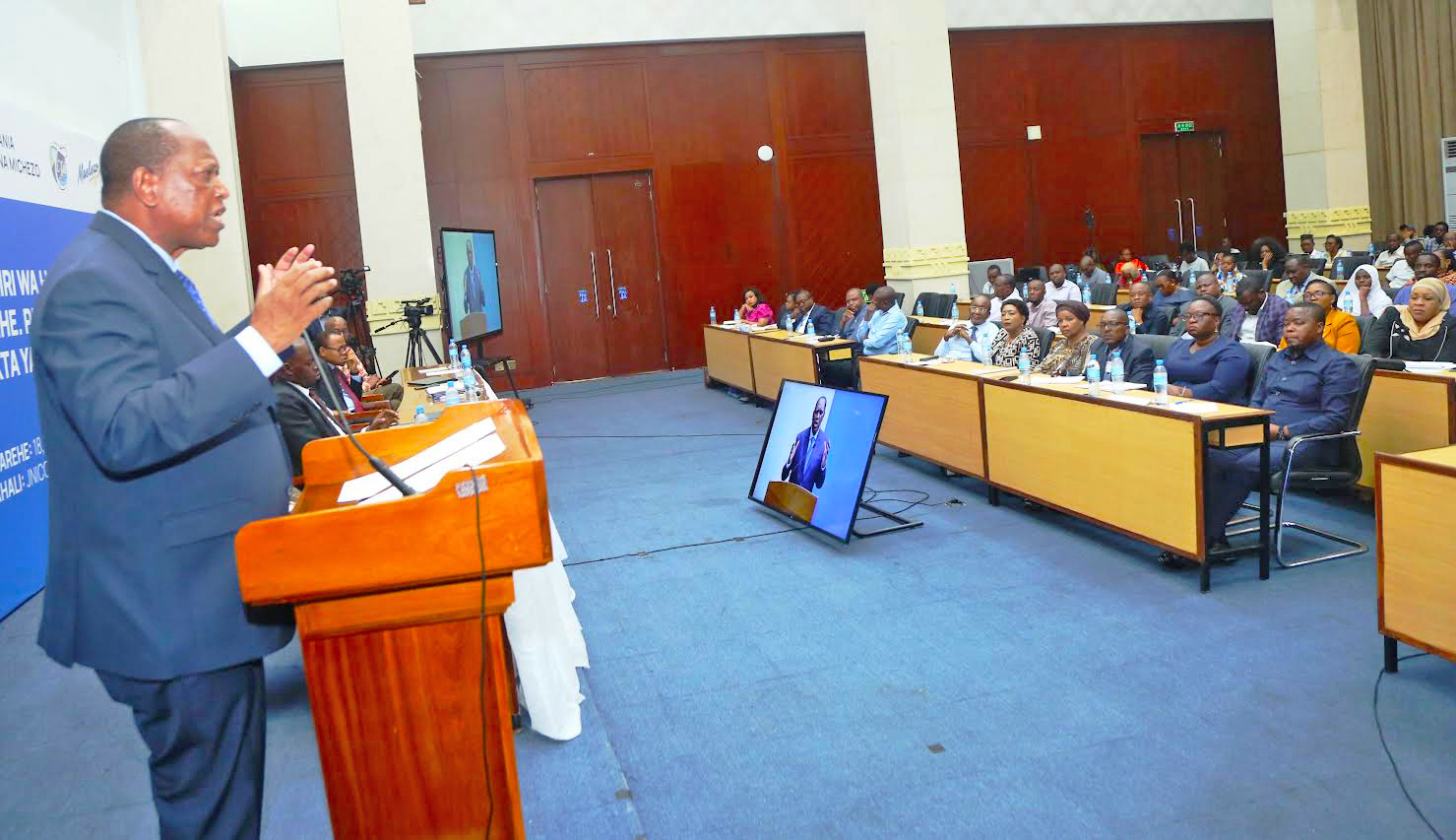Better times on the way, Tanzania assures media

Information, Culture, Arts and Sports minister Palamagamba Kabudi addresses media stakeholders in Dar es Salaam on December 18, 2024. PHOTO | SAID KHAMIS
What you need to know:
- The government has pledged to tackle the pressing challenges of the media sector and enhance media freedom
Dar es Salaam. The newly appointed Minister for Information, Culture, Arts and Sports, Prof Palamagamba Kabudi, said on Wednesday that the government is tackling pressing challenges in the media sector.
Speaking during a media stakeholders’ meeting in Dar es Salaam, Prof Kabudi cited the government’s ongoing reforms aimed at promoting press freedom, noting that Tanzania’s rise in the global media freedom rankings from position 143 in 2023 to 97 in 2024 reflects these efforts.
“I’m a newcomer in this sector, but I understand that the media is the fourth unofficial pillar of the state, alongside the executive, legislature and judiciary,” he said.
“Each pillar has a responsibility and our duty is to the people of Tanzania. This is why it is imperative to strengthen this sector and ensure it serves the public without hindrance,” he added.
To further support press freedom, Prof Kabudi announced plans for the launch of a regulatory board aimed at promoting professionalism among journalists, in January next year.
“This board is not a burden; it is a vessel to help journalists flourish. We expect it to provide training to ensure journalists produce well-researched and informative reports,” he said.
Addressing the welfare of journalists, the minister called for measures to ensure that journalists do not retire into poverty.
He urged collaboration with the National Social Security Fund (NSSF) to establish a framework where all journalists contribute to and benefit from retirement savings.
“We don’t want our journalists to become beggars at their elderly,” he said.
He also urged media outlets to formalise employment contracts for journalists to prevent unnecessary labour disputes.
“We need to ensure that journalists have contracts that protect them from exploitation. This is a matter of dignity and fairness and it’s something that we must address collectively,” he said.
Another pressing challenge raised by Prof Kabudi was the need for the media sector to embrace digital transformation.
He noted that the rise of online media has increased competition for mainstream platforms, which must adapt to survive.
“We must change our perspective and continue to invest in digital transformation. This is a collective responsibility to ensure our media houses remain profitable rather than incurring losses,” he said.
To combat the growing problem of misinformation on social media, Prof Kabudi called on stakeholders to address the spread of false information.
He said that the rapid growth of online platforms has exacerbated this issue and urged media stakeholders to work with the government to find solutions.
Prof Kabudi reiterated that President Samia Suluhu Hassan’s administration views the media as a partner, not a rival.
“The President has been clear that the government and media are not competitors. We are ready to work together for the betterment of our nation,” he said.
He revealed that the government will review the 2003 media policy and media laws to align it with current realities, including reforms to encourage foreign investment.
“The existing policy restricts foreign investors from owning more than 49 percent of a media house. We intend to make this policy friendlier to attract more investment in this sector, which requires substantial capital,” he said.
On the issue of media’s role in the upcoming general elections, Prof Kabudi urged media houses to report responsibly.
“We are entering an election period. Let’s report with caution and preserve the country’s image, unity and solidarity. The world sees us through the media,” he cautioned, adding that negative portrayals of Tanzania could harm key sectors such as tourism.
Prof Kabudi concluded: “My doors will always be open for any stakeholder in this sector. We must work together to achieve our collective goals.”





